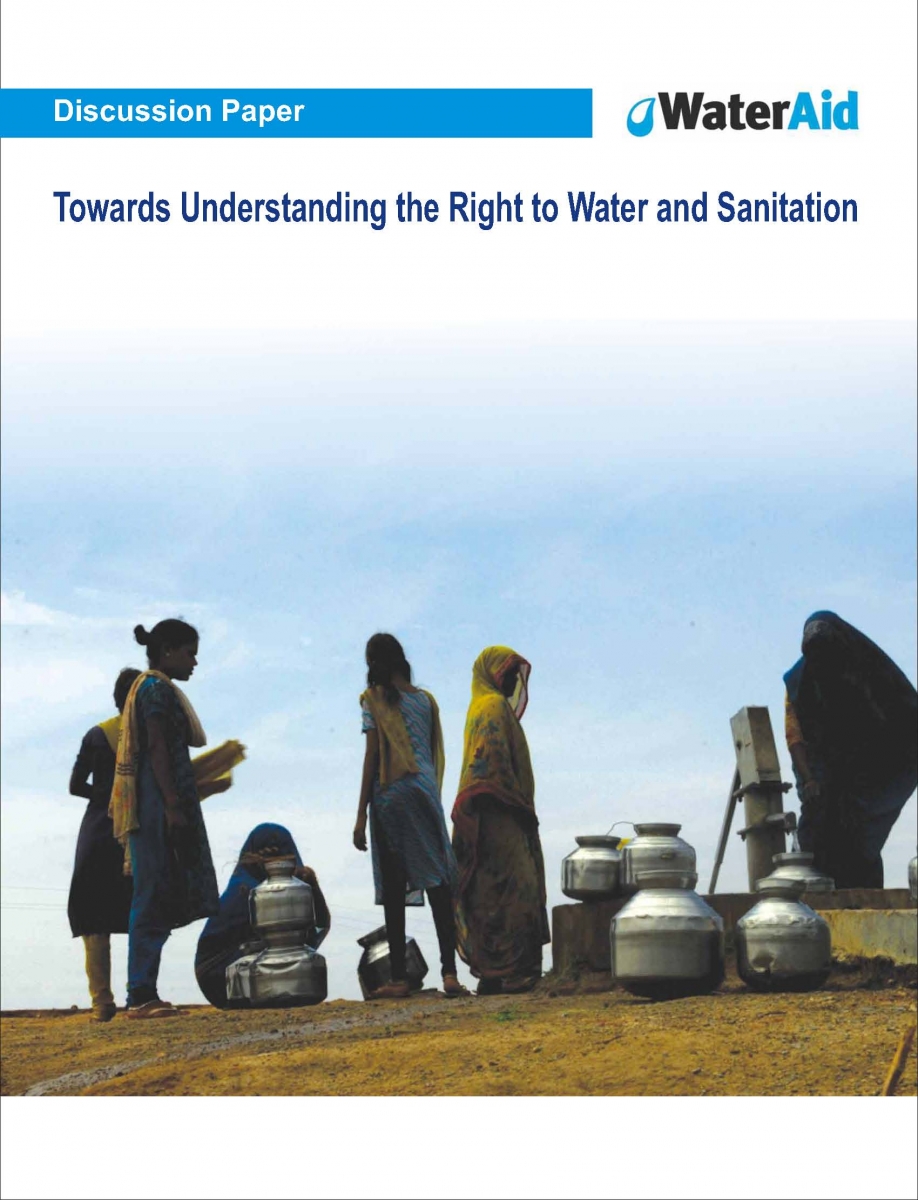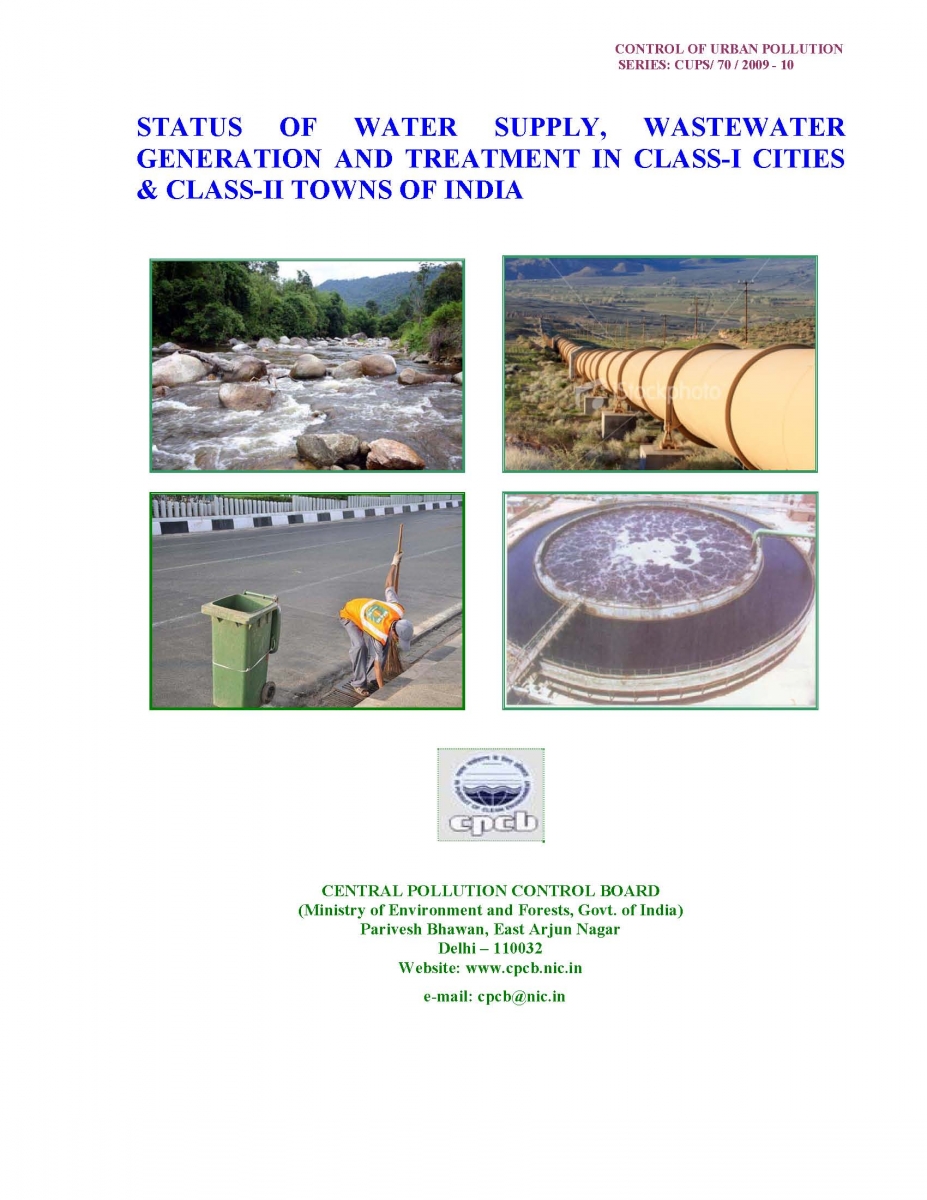India
Using dried wells to enrich deep level under ground water pockets
Posted on 31 Mar, 2010 02:45 PMBy using dried open wells, we can enrich the Underground water quickly.
In the good old days, open wells used to help the common man in fetching water for all purposes and specially the drinking water. Invasion of pump-sets and specially the deep bore wells have pulled the underground water indiscriminately. Therefore, the water table level of the underground water is continuously going down at a very alarming rate. This fall in the underground water table level has made many a very big and useful water wells dry up. Now they are not in use as people do depend on alternative source of water like bore well water or the tap water drawn from far off river water.
200 ft deep wells , in the corner of roads/parks , needed for rain water harvesting in cities
Posted on 31 Mar, 2010 11:51 AMRAIN WATER HARVESTING AT CITY.
LET US MAKE PLANS TO PRESERVE WATER AND SAVE THE ROADS.
Water is an important and essential commodity to every one which is to be preserved.
AT CITIES.
New farm practice for rice crop : A Lok Sabha response
Posted on 31 Mar, 2010 10:48 AM
Goverment of India
Ministry of Agriculture
Lok Sabha
Unstarred Question No 2961
Answered On 16.03.2010
New Farm Practice for Rice Crops 2961 .
J. Shantha
Will the Minister of Agriculture be pleased to state:-
- Whether a new farm practice has been developed in Karnataka to increase the productivity of land, water and other farm inputs in the cultivation of rice crops;
- If so, the details thereof;
- Whether this practice has incorporated some innovative features over the conventional method of flooded rice cultivation;
- If so, the details thereof;
- Whether the existing problems like water scarcity high energy usage and environmental degradation would adequately be taken care of and crop yield increased substantially by this new farming practice; and
- If so, the details thereof?
Water owned by all and used by all
Posted on 30 Mar, 2010 02:17 PMThis is cross posted from my blog (link). I wanted to introduce the idea of common pool resources, on which there is a whole new body of work coming up lately. This had won Elinor Ostrom the 2009 Nobel Prize. For water sector, I believe this theory can definitely yield some new insights. And it all starts with a question "Who owns the water?'
Fellowship Opportunity for Non-profit Leaders
Posted on 29 Mar, 2010 12:02 PMTake your leadership to the next level

Bioremediation of turbid surface water using seed extract from Moringa Oleifera Lam (Drumstick Tree)
Posted on 26 Mar, 2010 06:38 PMThis research paper describes an indigenous water treatment method, that uses Moringa oleifera (Drumstick) seeds in the form of a water-soluble extract in suspension, resulting in an effective natural clarification agent for highly turbid and untreated pathogenic surface water.
Water should be taught as a special subject in schools and colleges
Posted on 25 Mar, 2010 03:27 PMWater is now the major issue of the globe but the chief concern is that we donn't have an enough remedy. The problem is huge & the solution is little. We are only dealing the post- issue not the pre- issue. In my opinion water problem is now has taken a way of earning money, attending seminar delivering lecturers & only to clap on the verbal argument.
Dug well recharge scheme (2007-08 to 2009-10) - Revised guidelines with amendments to the scheme by the Central Ground Water Board
Posted on 24 Mar, 2010 03:46 AMThe State sector scheme on artificial recharge to groundwater through dug-wells is under implementation over the first three years of the (current) XI Plan Period (2007-12), in 1180 over-exploited, critical and semi-critical blocks/ talukas/ mandals in seven states of the hard-rock peninsular region of India, namely Andhra Pradesh, Maharashtra, Karnataka, Rajasthan, Tamil Nadu, Gujarat and Madhya Pradesh. The target beneficiary of the scheme are farmers who have privately owned wells, in their agricultural land.
Towards understanding the right to water and sanitation - A discussion paper by WaterAid India (2009)
Posted on 23 Mar, 2010 06:27 AM The right to water and sanitation is necessary for the enjoyment of other human rights, including the right to life and human dignity, the right to health, the right to adequate food, the right to development and the right to a healthy environment.
The right to water and sanitation is necessary for the enjoyment of other human rights, including the right to life and human dignity, the right to health, the right to adequate food, the right to development and the right to a healthy environment.
This discussion paper from WaterAid India, examines the need and background of the right to water and sanitation (RTWS), in both the global context (using existing International Human Rights conventions) and in the Indian context (using the Indian Constitution).
The paper lays down specific details of what a RTWS would entail, in terms of exact provisions that citizens could be entitled to. It also details the difference between RTWS and water rights, examines the judicial interpretation of such a right, using analysis of past cases related to RTWS.
Status of water supply and wastewater generation and treatment in Class-I cities and Class-II towns of India - A report by CPCB (2009)
Posted on 23 Mar, 2010 03:34 AM This is the fourth in a decadal series of reports published by the Central Pollution Control Board (CPCB), previous ones published in 1978-79, 1989-90 and 2000, which provides basic information about the status of water supply and sewage generation and treatment of 498 Class-I cities and 410 Class-II towns, along with information on 53 coastal Class-I cities and 35 coastal Class-I towns, besides Ganga Basin as a separate subsection.
This is the fourth in a decadal series of reports published by the Central Pollution Control Board (CPCB), previous ones published in 1978-79, 1989-90 and 2000, which provides basic information about the status of water supply and sewage generation and treatment of 498 Class-I cities and 410 Class-II towns, along with information on 53 coastal Class-I cities and 35 coastal Class-I towns, besides Ganga Basin as a separate subsection.